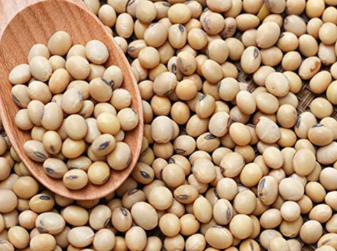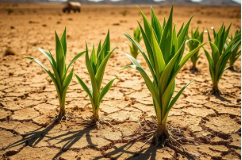
The Soybean Processors Association of India (SOPA) has urged the central government to reconsider its recent decision to reduce customs duty on crude edible oils by 11%, warning that the move could have severe consequences for India’s oilseed sector, farmers’ livelihoods, and the country’s goal of self-reliance in edible oils.
In a strongly worded letter to the Union Minister of Commerce & Industry and Consumer Affairs, SOPA Chairman Dr. Davish Jain outlined how the new policy, effective from May 30, 2025, could undermine domestic production and destabilize rural economies. Representing soybean processors and millions of oilseed farmers, SOPA expressed deep concern that the duty cut will lead to an influx of cheap imports, driving down local prices and discouraging oilseed cultivation.
The timing of the decision has raised particular concern, as it comes on the heels of the government’s announcement of higher Minimum Support Prices (MSP) for oilseeds. With inflation at a relatively low 3.16% in April 2025, Dr. Jain warned that the import duty reduction could render the MSP hike ineffective. “The reduced import duty threatens to flood the market with cheap edible oils, ultimately nullifying the intended benefits of the MSP and making oilseed cultivation financially unviable for farmers,” he said.
SOPA fears that the price pressure could cause a shift in crop patterns, with farmers moving away from oilseeds towards more lucrative or secure crops like paddy and maize. This would reduce the acreage under oilseed cultivation during the ongoing Kharif season and further compromise India’s edible oil security.
The association also highlighted the adverse impact on small and medium-scale oilseed processing units. These enterprises are already struggling with low margins due to weak demand for oil meals and rising input costs. Competing against low-cost imported oils may force many of these processors to operate below capacity or even shut down, jeopardizing rural employment and investment in the sector.
Dr. Jain also raised alarms over the broader strategic implications of the policy. “Reducing import duties at this time could reverse the progress made toward edible oil self-sufficiency and deepen India’s dependence on foreign imports,” he said. Additionally, he pointed out that India’s competitiveness in the global soybean meal market is being eroded due to high domestic prices and the mandatory blending of Distillers Dried Grains with Solubles (DDGS), leading to reduced export volumes.
To address these concerns, SOPA has proposed a series of corrective measures. These include the restoration or dynamic adjustment of import duties based on global price benchmarks to shield farmers from sudden market disruptions. SOPA also recommends maintaining a 15–20% duty differential between crude and refined oils to support the domestic refining industry.
The association further suggested suspending duty-free imports under agreements like the South Asian Free Trade Area (SAFTA) and implementing a minimum import price (MIP) to curb market distortion. Additionally, SOPA urged the government to revive the Bhawanter scheme—a price compensation mechanism—to protect farmers against market fluctuations and ensure robust MSP procurement.
On the supply side, SOPA advocates for distributing high-yielding seed varieties, promoting modern agricultural practices, and providing targeted subsidies to increase oilseed productivity. For processors, the group recommends low-interest loans for modernizing crushing units, along with subsidies on power and fuel.
To boost exports, SOPA requested the reinstatement of incentives under the Merchandise Exports from India Scheme (MEIS), an increase in the RoDTEP rate to 9%, and provision of transport and freight subsidies to enhance global competitiveness.
Dr. Jain concluded his appeal by reiterating SOPA’s support for the government’s long-term economic goals but emphasized the urgent need for corrective policy action. “We urge the government to swiftly reconsider the import duty cut and introduce robust support mechanisms to ensure the sustainability of the domestic oilseed ecosystem and protect the livelihoods of millions of Indian farmers,” he said.














